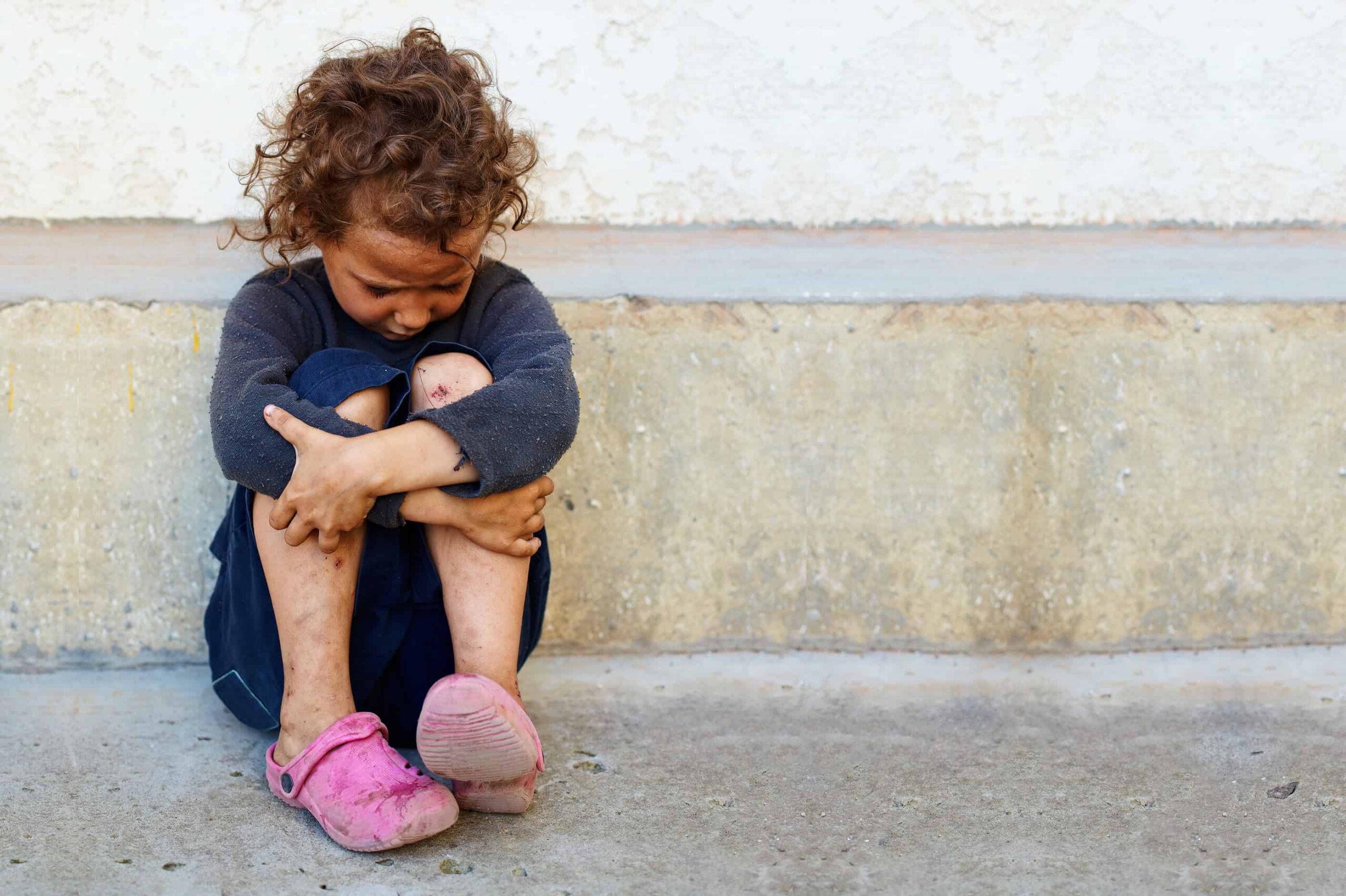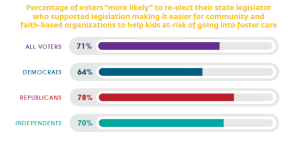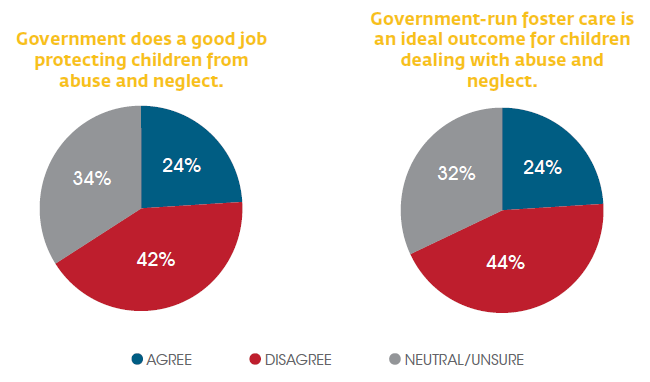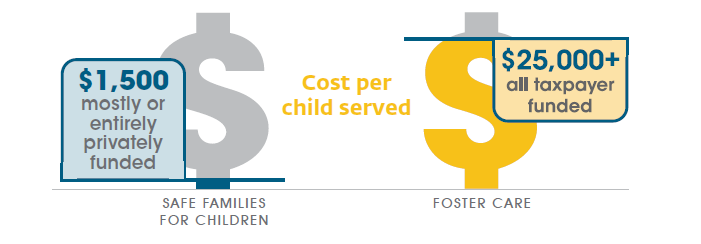
New Poll: Voters Know Government-Run Foster Care is Failing Kids
Our goal here at the Foundation for Government Accountability is exactly what the name implies: to hold government accountable for its actions, its use of taxpayer dollars, and its effect on our lives. And perhaps there is no issue where it is more important to hold government accountable than when it comes to protecting children in crisis.
When government-run foster care fails children, the headlines are horrific. When we read about a child enduring years of abuse, or worse yet, dying while in foster care, all too often the story includes mention of missed opportunities where government workers could have intervened to save the child, but failed to do so.
It’s not enough just to point out how foster care is failing kids. Voters want solutions that actually protect these vulnerable children, and they know that government-run foster care is not working.
This was abundantly clear in a poll we commissioned recently of 2,237 registered voters nationwide, comprised of 38 percent Republicans, 37 percent Democrats, and 26 percent Independents. The survey was conducted on July 28 through 30, 2015 and has a margin of error of 2.07 percent.
Across all demographic and partisan groups, poll respondents told us that they did not trust government to take care of at-risk kids. Forty-two percent said they believe government does a bad job of protecting kids from neglect and abuse, and only 24 percent believe that foster care is a good outcome for kids. The number is even higher among independents – a key voting bloc for 2016 – with 50 percent saying that foster care is a bad outcome for kids.
Voters aren’t just saying that government-run foster care is bad, they are strongly preferring private solutions. An overwhelming majority of voters, 70 percent, trust private charity and local community organizations, like churches, to protect and care for at-risk kids. Nearly as many, 69 percent, said they would be willing to volunteer to care for a child and the child’s family who are experiencing hard times, but only 14 percent of this group said they would be willing to do so through a government program, showing a strong preference for working through private charities instead.
Voters were also sympathetic to parents’ worries about losing custody of their children, with 87 percent of Republicans and 83 percent of Democrats saying that parents facing difficult situations deserve to receive help without the fear of losing their children to foster care.
Giving parents the support and resources to care for their families so they can avoid losing their children is a major part of what makes our Safe Families initiative such a successful alternative to government-run foster care, and voters agreed. Seventy-one percent of poll respondents expressed support of Safe Families.
 And, an important note for legislators who want to be reelected: substantial majorities of voters across the board told us that they would support legislators who make it easier for private charities and community organizations to help at-risk kids and their families. Overall, 71 percent of voters agreed with this statement. Privatizing government programs would be expected to find support with conservatives, and 78 percent of Republicans agreed, but even a strong majority of Democrats (64 percent) and Independents (70 percent) told us they would support legislators who favored private solutions to the foster care problem.
And, an important note for legislators who want to be reelected: substantial majorities of voters across the board told us that they would support legislators who make it easier for private charities and community organizations to help at-risk kids and their families. Overall, 71 percent of voters agreed with this statement. Privatizing government programs would be expected to find support with conservatives, and 78 percent of Republicans agreed, but even a strong majority of Democrats (64 percent) and Independents (70 percent) told us they would support legislators who favored private solutions to the foster care problem.
One of the aspects we liked best about this poll is how it showed that the people who understand the issue best and most personally agree with our work. In question after question, poll respondents who said that they had experience with the foster care system (as a child in the system, a parent, a caregiver, etc.), voiced support for private solutions over government programs.
Overall, 43 percent of poll respondents had past experience with the foster care system, and among them, only 28 percent said they thought government did a good job protecting children from abuse and neglect. Eighty-five percent said that a parent in crisis who is seeking help deserves the right to get help caring for their children without the fear of losing them to foster care, as long as physical or sexual abuse has not occurred. An overwhelming majority, 71 percent, favored local private organizations like charities and churches as better equipped to care for at-risk families and children. Seventy percent told us they supported the Safe Families initiative, and 73 percent said they would be more likely to re-elect legislators who supported it too.
With alternatives like Safe Families, we have an opportunity to provide hope for families who are struggling and better outcome for kids, while also relieving much of the burden on state foster care programs – all while saving taxpayers millions.


